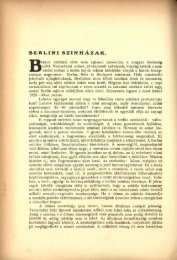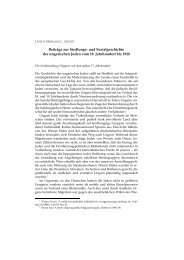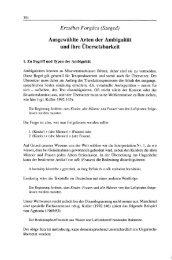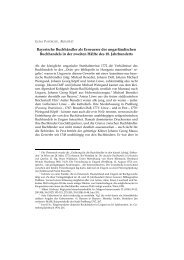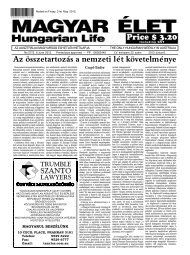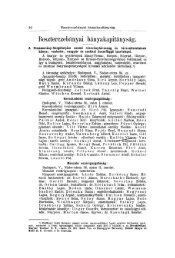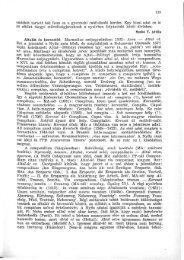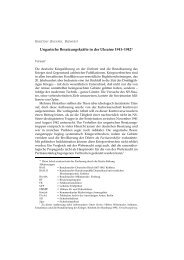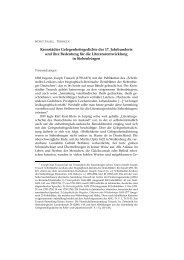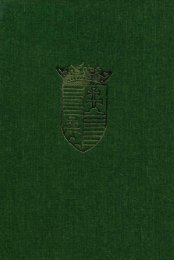Magyar szépirodalom idegen nyelven a M. N. Múzeum ... - EPA
Magyar szépirodalom idegen nyelven a M. N. Múzeum ... - EPA
Magyar szépirodalom idegen nyelven a M. N. Múzeum ... - EPA
You also want an ePaper? Increase the reach of your titles
YUMPU automatically turns print PDFs into web optimized ePapers that Google loves.
MAGYAR SZÉPIRODALOM IDEGEN NYELVEN Sí<br />
48. The ape and the fox. (A majom és a róka.) — 49. Joseph KÁRMÁN :<br />
The nightingale and the glow-worm. (A fülemile és a szentjánosbogár.) —<br />
50. The spring and the water-pipe. (A forrás és a csatorna.) — 51. Charles<br />
KISFALUDY: Life. (Az élet.) — Verses és prózafordítások. — Képekkel A. G.<br />
JBuTLER-től. — Jelzete: P. 0. hung. 456 i.<br />
BUTLER E. D. The legend of the woundrous hunt etc.<br />
591. The legend of the wondrous hunt by John Arany. With a<br />
few miscellaneous pièces and folksongs. Translated from the magyar<br />
by E. D. Butler. London. Trübner and Co. 1881.<br />
8-r. V, (2) 69 1. Ny. The coopérative jewish converts' institution u. o.<br />
Tartalom: 1. John ARANY: The legend of the wondrous hunt. (Buda halála<br />
VI.) — 2. Alexander PETŐFI : The quivering bush. (Reszket a bokor ...) —<br />
3. U. o. The orphan maidén. (Az árva leány.) •— 4—5. John VAJDA : Carpe<br />
-diem. (Mikor a nap...) — 6. Gregory CZUCZOR : The hoany bee. (A szerelem<br />
méhe.) — 7. Alois SZENTMIKLÓSSY : Human life. (Emberi pálya.) —<br />
8. Caspar BERNÁT : The fisher lad. (A halászlegény.) — Népdalok : 9. Dewdrops<br />
fali, the dawn is peeping. (Hajnalodik, harmatozik...) — 10. The no<br />
love maternai. (Nem anyától lettél.) — rí. Golden May-chafer, I ask not of<br />
thee. (Cserebogár, sárga cserebogár.) — 12. For Csurgó would I die. (Meghalok<br />
Csurgóért, de nem a városért.) — 13. Gay the life which glads me<br />
now. (Vörös bársony süvegem.) —'14. Dreaming, dreaming sweet is dreaming.<br />
(Álom, álom, édes álom.) — 15. Starry, starry shine yon heavens blue. (Csillagos<br />
az ég, csillagos.) — 16. The duck her young midst rushes rears. (Káka<br />
tövén költ a ruca.) — 17. He that yearns for her he loveth. (Kinek nincsen<br />
szeretője...) — 18. E'en the trees are wailing. (Amerre én járok...) —<br />
19. As the rose must wither. (Hervad az a rózsa.) — 20. As a rose to wither<br />
(Ha én rózsa volnék.) — 21. When a little wayward boy. (Mikor én kis<br />
gyermek voltam...) — 22. A little dog, a great one, too. (Kis kutya, nagy<br />
kutya.) — 23. See, the risen morning. (Feljött már a hajnal.) — 24. With<br />
crimson riband bound upon thy head. (Karmazsin pántlika a hajadba fonva.)<br />
Két nyelvű kiadás. — Jelzete : P. o. hung. 321 f.<br />
LOEW Wm. N. Gems from Petőfi and other hungarian poets.<br />
592. Gems from Petőfi and other hungarian poets [translated]<br />
with a] memoir of the former and a review of Hungary's poeticái<br />
literature. By Wm. N. Loew. Published by Paul O. d'Esterhazy, N(ew)<br />
Y(ork). 1881.<br />
8-r. XX, 126 I. Ny. u. o. Tartalma: 1. Alexander PETŐFI: My songs.<br />
(Dalaim.) — 2. The thought torments me. (Egy gondolat bánt engemet.) —<br />
3. In my native land. (Szülőföldemen.) — 4. National song. (Nemzeti dal.) —<br />
5. War-song. (Csatadal.) — 6. Farewell. (Búcsú.) — 7. The end of the year.<br />
•(Az év végén.) — 8. I am a <strong>Magyar</strong>. (<strong>Magyar</strong> vagyok.) — 9. If born a man,<br />
then be a man. (Ha férfi vagy, légy férfi.) — 10. Ragged heroes. (Rongyos<br />
vitézek.) — 11. On a railroad. (Vasúton.) — 12. At home. (Hazámban.) —<br />
4*



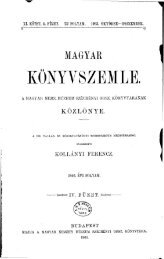
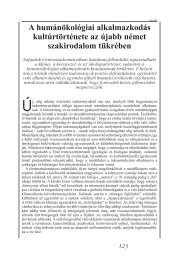
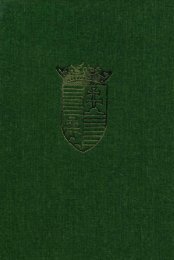
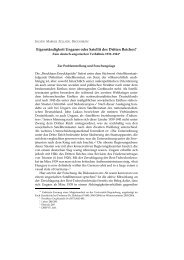
![Letöltés egy fájlban [36.8 MB - PDF] - EPA](https://img.yumpu.com/23369116/1/172x260/letoltes-egy-fajlban-368-mb-pdf-epa.jpg?quality=85)
